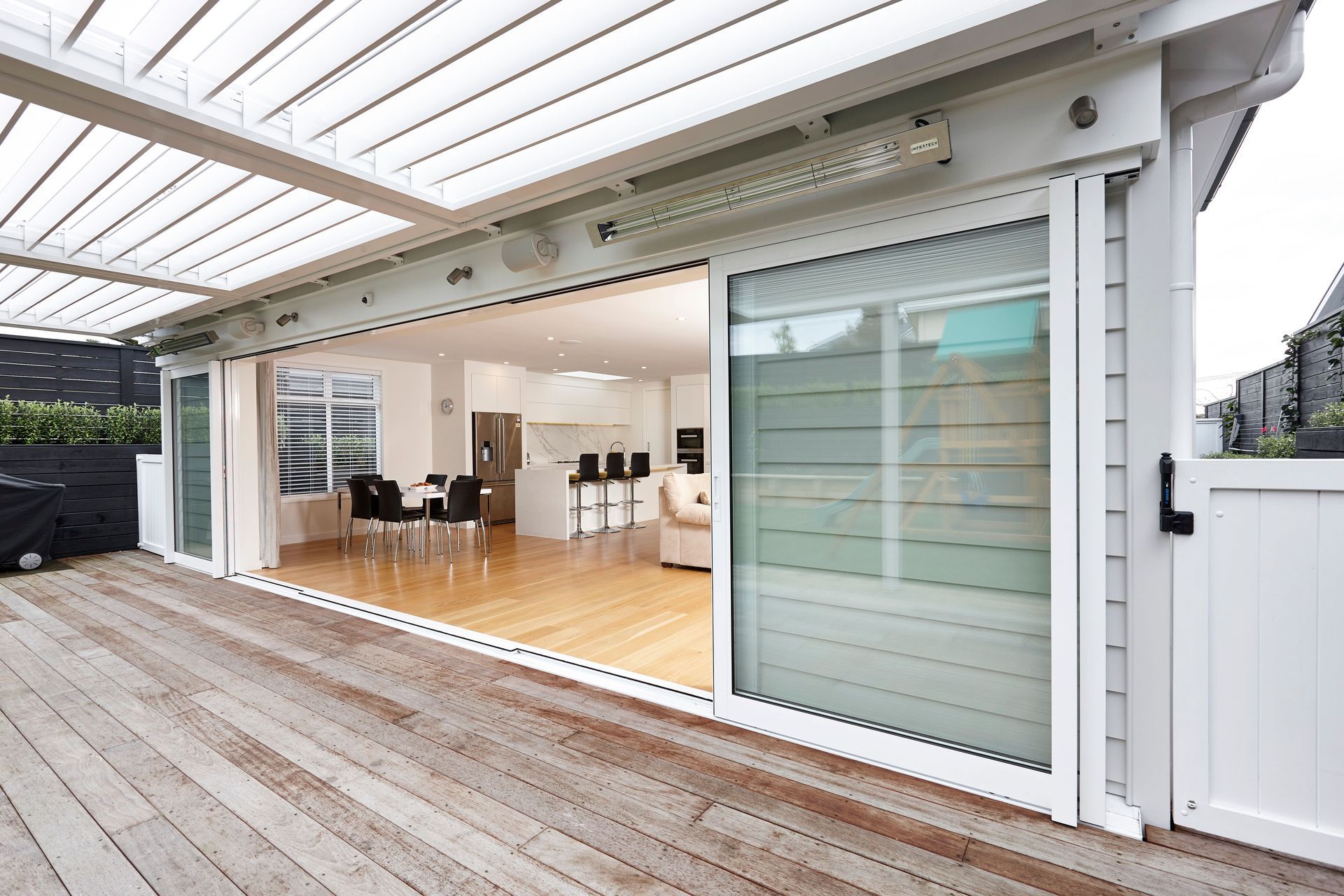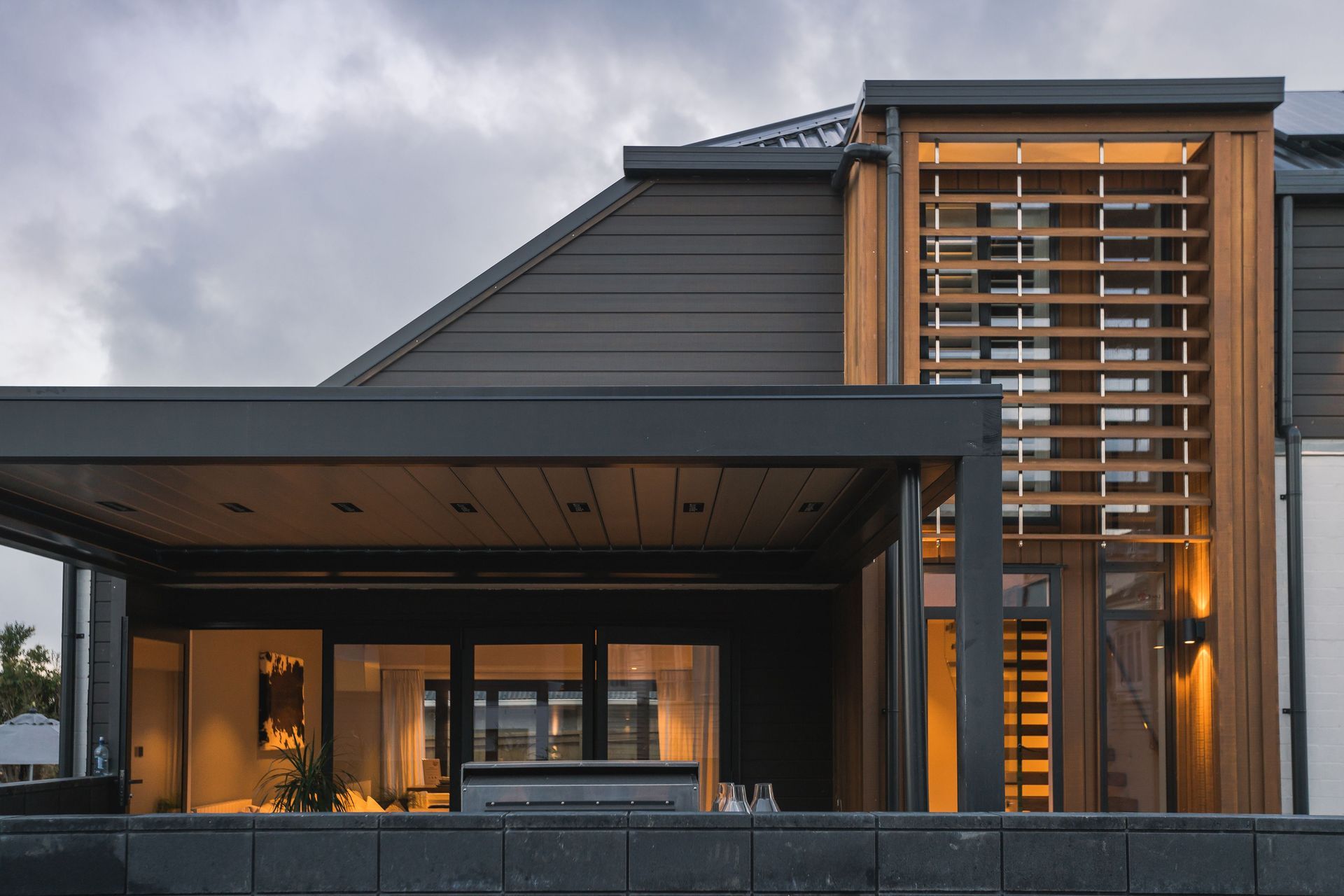Exploring the future: windows and doors

As a contemporary global society, we have more visibility than ever before about what is happening on the global stage in terms of built environments, and with that comes greater access to technology and materials.
“These factors also influence people’s perceptions and expectations of different products,” Altus’ Haydon Rogers says. “For example, a decade ago - single glazing was in over 90 per cent of all new home builds here in New Zealand, now double glazing represents over 90 per cent, and in some regions like central Otago, triple glazing is becoming more popular.”
“As we become more thermally conscious, the appeal of thermally efficient joinery is starting to influence decision making, particularly in colder regions where thermally broken aluminium joinery with the best glazing; featuring argon filled and low-emissivity glass has found a niche. A niche that with time, and as consumer awareness and expectations grow will continue to expand to the point where it potentially becomes the new norm.”
It was this global visibility, Haydon says, that formed part of the government’s drive for healthier homes that saw changes to the Building Code in terms of thermal performance requirements, insulation grants and the H1 Clause, which meant almost by default, double glazing became the new standard.
Medium density living in urban settings is also having an influence on window design. “As homes are built closer to each other, more consideration for joinery and glass comes into play. Acoustic requirements may see forms of sound dampeners creeping into joinery, and if we consider terraced living or apartments, the overall number of windows required will reduce.
“But at the same time, performance requirements will go up as the buildings are over multiple levels. Joinery will likely be bigger, with full height units becoming the norm to allow maximum light, for example, on the balcony side of an apartment when you consider the walls either side are likely to be windowless.”
Health and safety will also be an influencing factor, as we’ve already seen with the new regulation changes. So windows that are safer to install will play a role. This may see windows that are deconstructed to be more easily put together on-site. Seismic frames will also become part of the construction vernacular, Haydon says.
There are other factors at play too, from automation to off-site prefabrication, both of which will change the way we look at window design.
“More and more prefabrication construction start-ups are appearing every year,” Haydon says. “With the governments KiwiBuild scheme and a number of other influencing factors like; shortage in skilled labour, health and safety and a housing shortage – prefabrication may change the way we build, the materials we use and this could also include windows. Windows such as Smartfit® that are ideal to a production line model as they come in cassette form, are easily fixed to the wall from one side and there is no need for additional components - may start to find a natural fit.”
And, in regards to automation, this is surely set to play a much larger role in window design. We’ve already seen digital devices and connectivity playing a major role in how we work and live, and cloud-based facilities that allow for whole-home automation.
“This connectedness may one day open and close windows for ventilation, open and close doors for security, and in fact, one day, if photovoltaics can be truly harnessed, a home’s windows may start to play a bigger role in the way we live – more than any other home component.”
Calling all Architects and Designers
Altus Windows are currently working in conjunction with Architectural Designers New Zealand, Metro Performance Glass and guest speakers Leuschke Group Architects to produce a series of seminars Designing with Glazing, which explores these concepts in detail and offer an educational insight into windows and doors, efficient design and exemplary buildings.
The seminars are running nationwide throughout April and May 2018. Make sure you visit Altus Windows on ArchiPro here or register for an event near you: Register as an architect or Designer.
All attendees go in the draw to win 1 of 5 sets of Monmouth Glass Studio cups.



